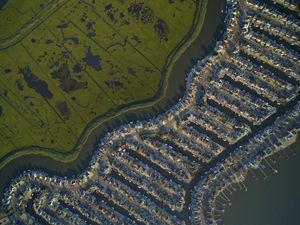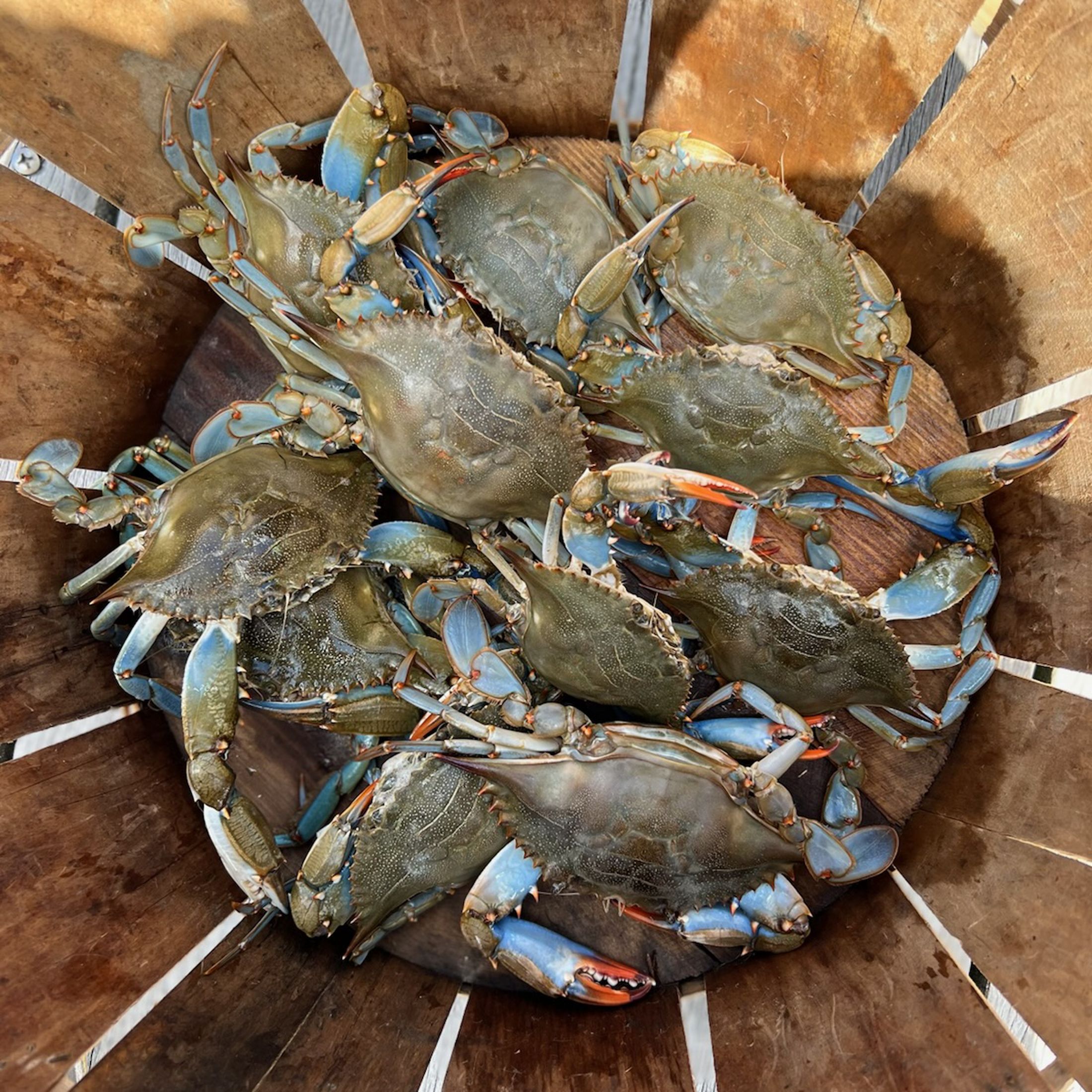
Protecting South Carolina's Coasts and Culture
Tia Clark is bringing national attention to the state's shoreline through crabbing, and federal funding from the IIJA can ensure it stays protected.
Tia Clark was like most children. She loved eating but didn’t give much thought to where the food on her plate came from.
“I grew up in downtown Charleston in a big Gullah Geechee family,” Clark says, referring to the descendants of enslaved Africans who worked the plantations of the coasts and islands of the Carolinas, Georgia and Florida. “My great grandma had 16 kids, so it was a very large family, and we ate a ton of seafood.”
Blue crabs—the Carolinas’ most popular crustacean—were especially popular in her extended family, she says, and “we knew we were eating good when crab was on the table.”
What Tia didn’t know—and hadn’t thought much about—was how that crab got to the family dinner table. Not, at least, until she was in her late-30s, and 20 years of hard work and long nights in the bar and restaurant business began to take a toll on her body. Looking for better health, Clark quit smoking, changed her diet and began searching for ways to be more fit.
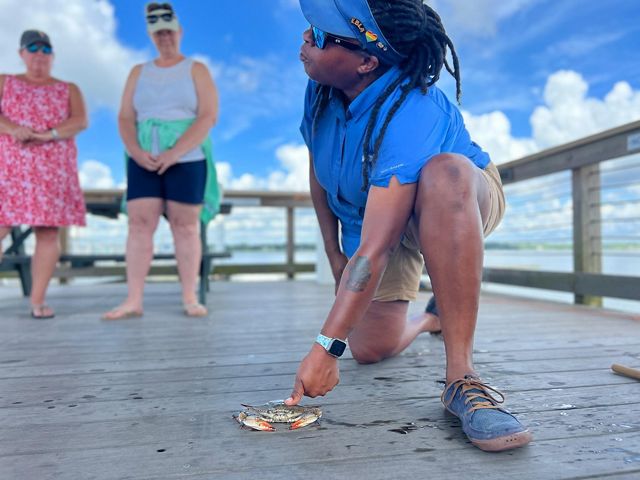
Tia Clark runs an Airbnb experience called “Casual Crabbing with Tia” that takes customers crabbing for Blue crabs—the Carolinas’ most popular crustacean.

“I had to find a way to get physically active, and then a cousin said he would take me crabbing,” she recalls. “We went to this dock that was familiar to me and he started dropping baskets in the water, and I was flipping out, because I could not believe there were crabs in that water. How did I not know they were there?”
Crabbing became part of Clark’s daily routine because, she says, “being next to the water is life changing. It takes me back to my history, my family, my culture.”
Eventually, friends encouraged her to share this experience with others, and one thing led to another. In 2018, Clark’s wife typed up an application to Airbnb’s “experiences” section, and “Casual Crabbing with Tia” quickly became one of the online booking company’s hottest tickets. The success of the business has launched a new career for Clark, who has been featured in Southern Living and other magazines, and was tapped to be an ambassador for designer sunglasses.
Quote: Tia Clark, Crabbing With Tia
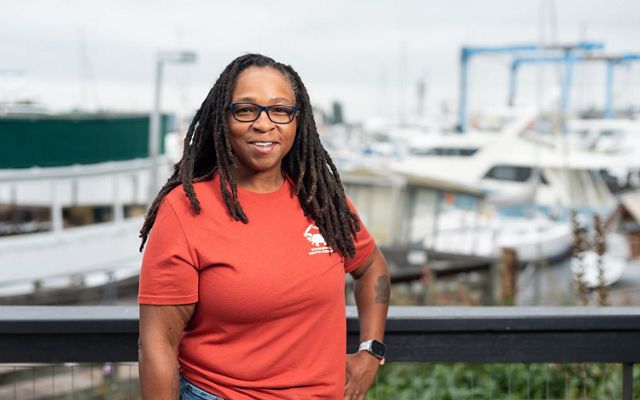
Shoreline restoration is what’s going to keep our natural resources secure. If we don’t protect our shoreline, it’ll be washed away.
Clark says the popularity of her program isn’t about her. “It’s about nature. Tell me another time when you have all five senses lit up, just popping off the top all at once. You can smell the saltwater, feel the wind off the sea. You can see these animals and touch them.”
Tia Clark is an especially inspirational example of how South Carolina’s coastal lands and waters support the region’s economy, cuisine and culture, says Joy Brown, the Resilient Communities Program Director for The Nature Conservancy in South Carolina. The salt marshes, which can extend miles away from the ocean, are essential for the survival of blue crabs and other iconic sea creatures. These habitats are protected by 2,800 miles of shoreline.
“South Carolinians love and value our coastline,” Brown says. “Tia has brought national attention to its beauty and abundance. But the coast is threatened by habitat loss, storms and rising sea levels. And all these threats are made worse by climate change.”
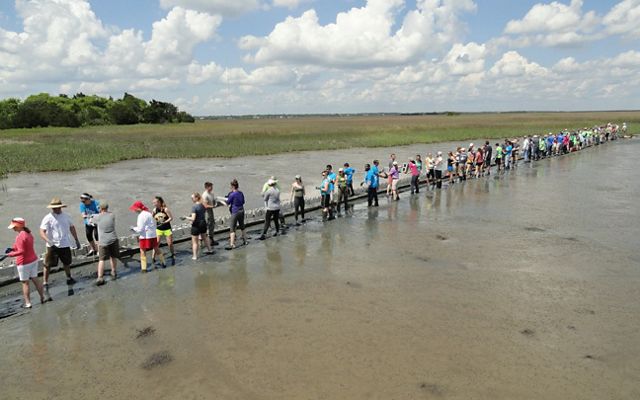
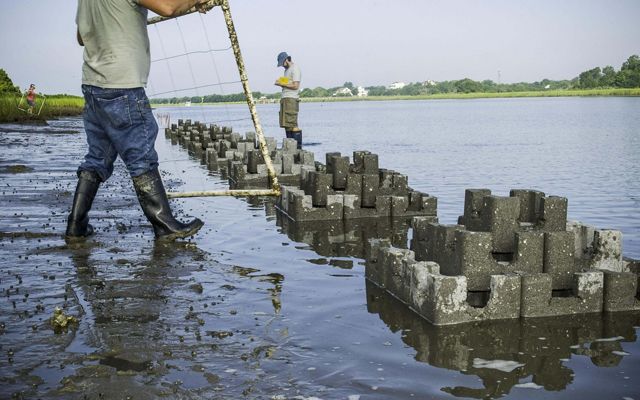
As Tia Clark and others build public support for coastal systems, the United States Congress has approved unprecedented federal funding over the past few years that could help protect and restore those systems. The Inflation Reduction Act and the Infrastructure Investment and Jobs Act (IIJA) are beginning to move vital investments to South Carolina’s coast.
For example, a $6.8 million grant, selected for funding by the National Oceanic and Atmospheric Administration, will expand and significantly increase the use of living shoreline (think native vegetation, oyster reefs and other natural infrastructure) to stabilize coasts against storms and rising sea levels, especially in historically-underserved communities. The grant also fosters a partnership with the Gullah Geechee Cultural Heritage Corridor to support the development of a community ambassadors program, which will encourage long-term acceptance and installation of living shoreline projects.
This grant is included in $15.5 million that the federal government has recommended for South Carolina coastal projects. Grants to state agencies and other non-governmental organizations will be used to conserve coastal habitat, create additional oyster reefs, reduce plastic pollution and remove coastal debris.
“Shoreline restoration is what’s going to keep our natural resources secure,” Clark says. “If we don’t protect our shoreline, it’ll be washed away.”
Tell Congress to Protect Conservation Funding
Government action on conservation is at an all-time high. We need to keep that going.
Add Your Name
